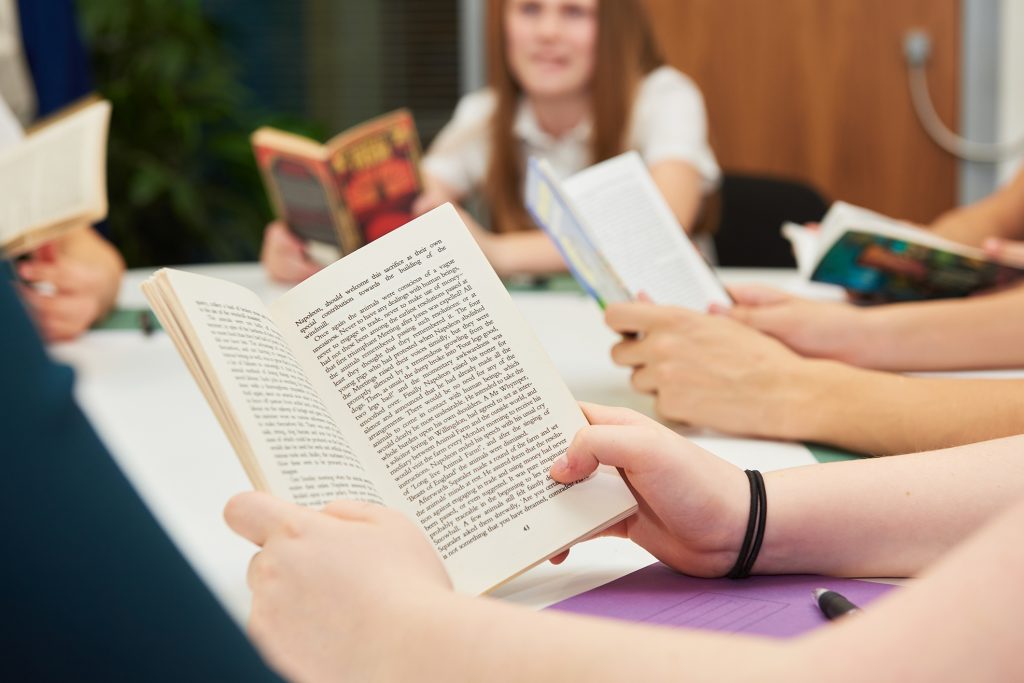 There is an even bigger crisis in teaching than even I had imagined when I wrote my 2017 blog, GCSE Versus IGCSE, Guess who Wins?, In outlining the differences between the new GCSEs in comparison to the IGCSEs, my aim was to highlight the clear unfairness of the new system for students in the English state sector in comparison to the private sector, who could select IGCSE as an alternative. A combination of GCSE reforms and cuts in education has resulted in a whole host of demoralised students who have lost their sense of purpose in education. Is it time to reform the reforms?
There is an even bigger crisis in teaching than even I had imagined when I wrote my 2017 blog, GCSE Versus IGCSE, Guess who Wins?, In outlining the differences between the new GCSEs in comparison to the IGCSEs, my aim was to highlight the clear unfairness of the new system for students in the English state sector in comparison to the private sector, who could select IGCSE as an alternative. A combination of GCSE reforms and cuts in education has resulted in a whole host of demoralised students who have lost their sense of purpose in education. Is it time to reform the reforms?
GCSEs are Harder than IGCSE
According to a recent article in The Guardian, ‘The Department for Education describes the reformed GCSEs, which started to be introduced last year, as “gold standard”. But official figures show that many independent schools are opting for internationally recognised GCSEs (IGCSEs), which are being phased out of state schools at the behest of the government because it considers them less robust..’ The latest statistics reveal that: “91% of the 26,042 IGCSE entries in core (EBacc) subjects such as English, Mathematics and the sciences were in independent schools this year. Independent schools educate 7% of all pupils in England.”
This confirms that IGCSEs are still the examinations of choice for the majority of private schools. Why do the majority of private schools select IGCSE instead of the ‘gold standard’ of the new GCSEs? Plus, why is it only the English state educated students who have to reach this ‘gold standard’?
A clear example of the differences is in English Literature and English Language. At IGCSE there are options for coursework OR 100% examination, as well as January and June entry and open book examinations. Therefore, even within the qualification itself, the private school students still have the advantage of choice. There are no options for the state school students. In English it is 100% examination, closed book and June only entry. It may suit some to sit 100% examinations, but it is supposed to be a ‘general’ certificate to suit the majority not the minority. Why can state educated students not have the element of choice afforded to the private school students?
An Holistic Viewpoint
In addition, the debate is not just about the analysis of qualifications in isolation. A clear example of this is that I tutored a girl at private school who, because of coursework, had 14 exams over 3 weeks. The state school students, who were just as clever, and worked just as hard, had no coursework and sat 33 examinations to get the same number of GCSEs. Both sets of qualifications were graded 9-1. The overall grades achieved by the state educated students were much lower. What it confirms is that the whole approach that is flawed. Can it really be argued that sitting 33 examinations over 3 weeks is a logical way of assessing the years these students spend in school? Surely, it is not a coincidence that there has been such a huge rise in mental health issues in teenagers?
Increased Issues with Mental Health and Future Planning
The lowering of the status of the Arts and creative subjects is also a major issue linked to the rise in mental health problems. The Arts are a brilliant way to alleviate mental health issues. Many state school students are missing out on such opportunities. Students are left with more limited choices at GCSE, that steer them towards academic subjects that they are not necessarily interested in, or good at. This restriction of personal choice also leads to disaffection and an increase in mental health issues. New GCSEs are on the whole, recall and content, they do not develop independent thinking or emotional intelligence. Many students are so disillusioned and bored with their experience of education they do not even want to go into further study at 16, never mind university. This impacts on their future choices. If we do not act soon, we are at risk of creating a ‘lost generation’, who are not prepared for either further education, or work.
The Ultimate Issue – Choice
The problem for state schools is they have no choices. In private education there is a choice, in state education we are forced to teach what is dictated by the government. The private sector should be applauded for making a stand and providing a curriculum that suits the students. Julie Robinson, general secretary of the Independent Schools Council, confirms that schools in the private sector chose qualifications “based on the intrinsic educational quality of the course content. They have a responsibility to ensure pupils are fully prepared for their next steps in life, achieving qualifications that are well-respected and valued by universities and employers”. It could be argued that getting qualifications is not necessarily the key to success in life. Nevertheless, it is galling that if you pay for a private education you get unparalleled advantages, including a more straightforward and rewarding route to academic success. Students from all backgrounds are entitled to a decent education. It is about fairness – for some state students IGCSE would be better, but this is not an option in the state sector. If the IGCSE has such merit, why do the government not allow the state students to sit these examinations? What is needed is for the state sector to follow suit. MPs and school leaders need to argue that state schools should also be allowed to take full responsibility and select the curriculum that best suits the talents and needs of their students.
A Business Model with NO Market Choice
State funded schools are in the ridiculous position of being run like businesses, but with examinations controlled by government. But, they do not have a ‘free market choice’, the clear advantage of following a business model. The government have a ‘nanny state’ mentality for state schools where everything and everyone is micro managed, but there are no choices within this. The EBACC approach has resulted in even further restrictions in choice and severely limits the success of a whole host of students. Private schools have the advantage of a ‘free market’, they able to select the examinations that best suit their students. State schools are left with a combination of the worst element of both approaches – a business model micro managed by a nanny state mentality. Such an approach is detrimental to both staff and students in the state funded sector. It is not tenable in the long term, high levels of student and teacher disaffection is testament to this.
Ignorance and Want
The narrowing of the curriculum is making it even more difficult for students from lower incomes to escape ‘poverty’, it is making a bad situation worse. In addition to the education system, they are facing issues with housing, benefits, access to work, cuts to social work, fees for university, instability in the teaching profession, libraries shutting… I could go on. The height of irony is that many state school students are studying ‘A Christmas Carol’. In his novella Dickens includes the dire warning that society is doomed if we lose sight of our collective responsibility for children:
‘They are Man’s,’ said the Spirit, looking down upon them. ‘And they cling to me, appealing from their fathers. This boy is Ignorance. This girl is Want. Beware them both, and all of their degree, but most of all beware this boy, for on his brow I see that written which is Doom, unless the writing be erased. Deny it.’ cried the Spirit, stretching out its hand towards the city. ‘Slander those who tell it ye. Admit it for your factious purposes, and make it worse. And abide the end.’
Is what is happening in many state schools too far removed from this? For example:
- Removing children from the rolls who need to MOST help because their potentially low qualifications will be detrimental to the league tables;
- Lack of funding for SEND students;
- Limiting the choices of the students because schools will get less points in the league tables;
- Allowing students to stay in school, relatively unpunished, because excluding children will impact on OFSTED outcomes.
We are faced with a ‘cat and mouse’ system where the welfare and education of our children has become mired in the need to ‘look good’ as opposed to genuinely ‘being good’. What we must do is all work together to ‘erase doom’ from the foreheads of our children – and put their needs at the very heart of their education.
Reforming the GCSE Reforms
There have been so many changes in education, I fully understand why there is no appetite for even further change. Nevertheless, if some kind of change does not come very soon, we face the ruins of an under funded, disillusioned, profession eroding into an even worse state. As I stated in my original blog, here are some straightforward solutions, that provide schools, students and teachers with an element of CHOICE:
- Reinstate coursework as an option;
- One of the examination papers in each subject could be converted to a coursework unit;
- Create modules – reinstate the option for staggered January and June entries;
- Allow open book examinations – in line with IGCSE;
- Allow state schools to sit the IGCSEs and remain in the League Tables.
References:
https://www.theguardian.com/education/2018/dec/30/labour-demands-inquiry-into-private-schools-evading-gcse-reform
http://www.cedmagic.com/featured/christmas-carol/1951-xmas-ignorance-want.html
https://everythingenglisheducation.co.uk/everything-english-education-gcse-reforms-igcse-versus-gcse-guess-who-wins/

